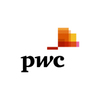PwC UK Hotels Forecast 2020 - 2021
From endurance to recovery

A volatile outlook into 2021
In the bleakest outlook since benchmarking began, hotel occupancy rates in 2021 are forecast to be 55% across the UK, and could take four years to return to pre COVID-19 levels. This is a stark reality for a once optimistic industry, which had seen a decade of growth post the global financial crisis.
Given the large number of uncertainties around COVID-19 restrictions, forecasting hotel demand is extremely challenging. The availability of a vaccine that can be quickly and widely administered is key to demand recovery coupled with consumer confidence to travel.
The challenge the industry has faced is which assumptions to model. For this reason our forecast is modelled on an average of two scenarios regarding COVID-19. The first assumes a vaccine in Q1 2021, the second assumes a vaccine in Q3, though neither are guaranteed. If no vaccine is developed this will dampen demand further.
In both scenarios, the forecast for 2020 shows the largest percentage decline in revenue per available room (RevPAR) since formal hotel performance benchmarking began, followed by the largest percentage increase in RevPAR for 2021.The forecast for occupancy in 2021 is predicted to be 52.4% for London and 59.2% for the regions. This represents a decline of 31% and 16% respectively when compared to 2019. This shows the scale of the challenge for hotels planning for the year ahead: the only significant market now, and into 2021, will be UK domestic tourism.
Business travel will remain muted. Key gateway cities relying heavily on international leisure, or corporate and events driven demand, including London and Edinburgh, are forecast to experience lower occupancy rates in 2021 compared to coast and country locations.. Although forecasts for 2021 show some relief compared to the precipitous declines of 2020, this is far from 'business as usual', with room occupancy rates across the UK forecast to be at the lowest level since hotel benchmarking services began gathering data in the 1970s. Hotels must act now to recover The recovery in occupancy is likely to take longer than recovery from the 2008 Global Financial Crisis. It appears unlikely RevPAR in London will return to 2019 levels in real terms until 2024, with the UK regions possibly achieving the same result a little earlier in 2023 subject to a successful vaccine implementation in 2021.
The economic outlook for the UK is 'unusually uncertain', according to the Bank of England. After five years of above average supply growth in the UK, new hotel room supply growth is likely to be severely reduced and overall supply growth may well turn negative when permanent hotel closures are factored in. While the route to recovery is unlikely to be smooth, there are actions hoteliers, and those who invest in the industry, can take to put themselves on the right path. They need to have control over the complex financial, operational and strategic challenges they may face to find success through a strong recovery. Through focusing upon operations, liquidity and cash, financial restructuring and stakeholder management and strategic mechanisms now, hotels can help mitigate the uncertainty of the market.
To find out more about how to maximise your options and restructure for recovery, click here.
About PwC US
At PwC, our purpose is to build trust in society and solve important problems. We"re a network of firms in 158 countries with more than 236,000 people who are committed to delivering quality in assurance, advisory and tax services. Find out more and tell us what matters to you by visiting us at www.pwc.com.
PwC refers to the PwC network and/or one or more of its member firms, each of which is a separate legal entity. Please see www.pwc.com/structure for further details.
Laura Schooler
PwC US
+1-646-471-3229
PricewaterhouseCoopers
